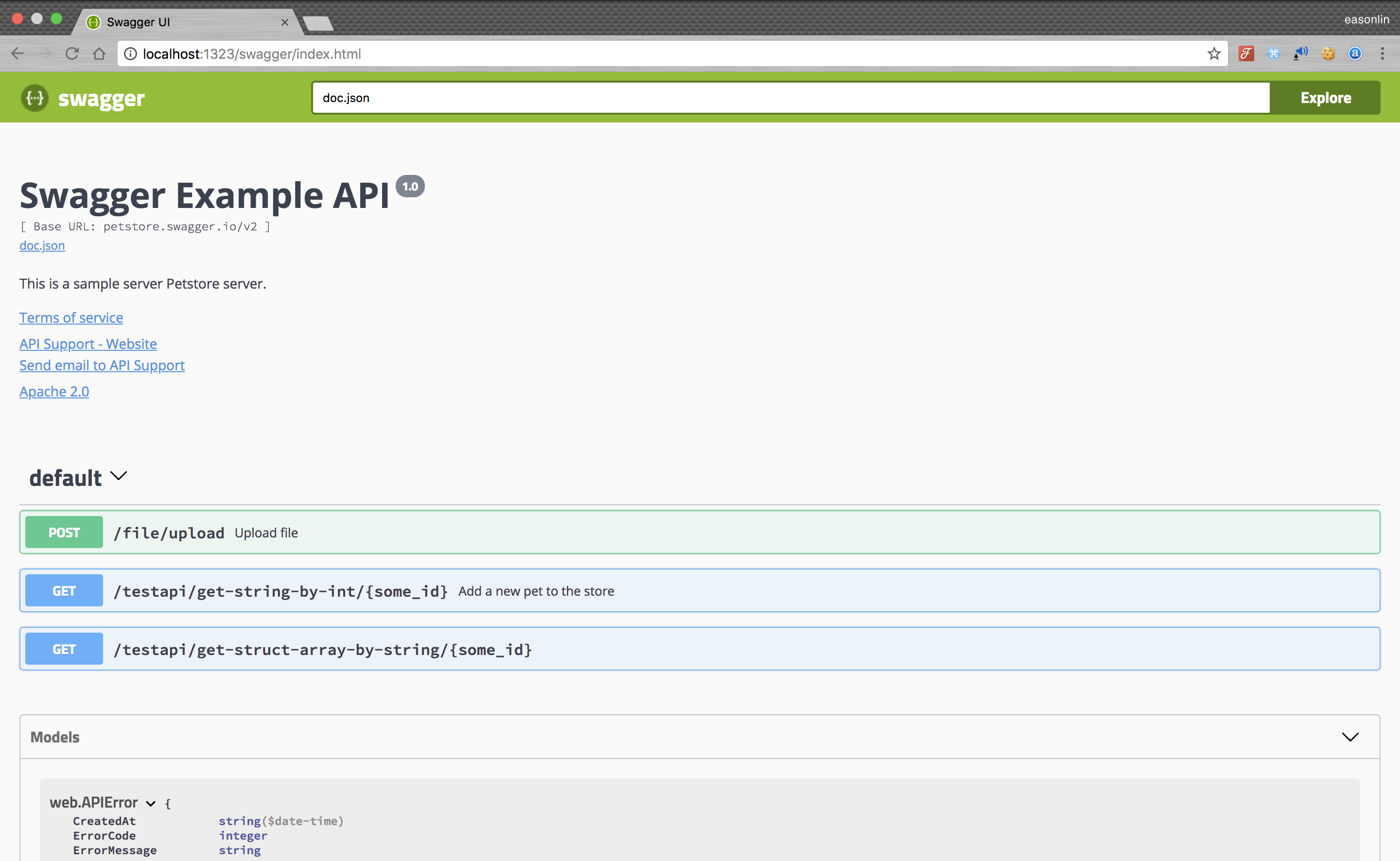73 lines
2.2 KiB
Markdown
73 lines
2.2 KiB
Markdown
# echo-swagger
|
|
|
|
echo middleware to automatically generate RESTful API documentation with Swagger 2.0.
|
|
|
|
[](https://travis-ci.org/swaggo/echo-swagger)
|
|
[](https://codecov.io/gh/swaggo/echo-swagger)
|
|
[](https://goreportcard.com/report/github.com/swaggo/echo-swagger)
|
|
|
|
|
|
## Usage
|
|
|
|
### Start using it
|
|
1. Add comments to your API source code, [See Declarative Comments Format](https://github.com/swaggo/swag#declarative-comments-format).
|
|
2. Download [Swag](https://github.com/swaggo/swag) for Go by using:
|
|
```sh
|
|
$ go get github.com/swaggo/swag/cmd/swag
|
|
```
|
|
|
|
3. Run the [Swag](https://github.com/swaggo/swag) in your Go project root folder which contains `main.go` file, [Swag](https://github.com/swaggo/swag) will parse comments and generate required files(`docs` folder and `docs/doc.go`).
|
|
```sh
|
|
$ swag init
|
|
```
|
|
4.Download [echo-swagger](https://github.com/swaggo/echo-swagger) by using:
|
|
```sh
|
|
$ go get -u github.com/swaggo/echo-swagger
|
|
```
|
|
And import following in your code:
|
|
|
|
```go
|
|
import "github.com/swaggo/echo-swagger" // echo-swagger middleware
|
|
```
|
|
|
|
### Canonical example:
|
|
|
|
```go
|
|
package main
|
|
|
|
import (
|
|
"github.com/labstack/echo"
|
|
"github.com/swaggo/echo-swagger"
|
|
|
|
_ "github.com/swaggo/echo-swagger/example/docs" // docs is generated by Swag CLI, you have to import it.
|
|
)
|
|
|
|
// @title Swagger Example API
|
|
// @version 1.0
|
|
// @description This is a sample server Petstore server.
|
|
// @termsOfService http://swagger.io/terms/
|
|
|
|
// @contact.name API Support
|
|
// @contact.url http://www.swagger.io/support
|
|
// @contact.email support@swagger.io
|
|
|
|
// @license.name Apache 2.0
|
|
// @license.url http://www.apache.org/licenses/LICENSE-2.0.html
|
|
|
|
// @host petstore.swagger.io
|
|
// @BasePath /v2
|
|
func main() {
|
|
e := echo.New()
|
|
|
|
e.GET("/swagger/*", echoSwagger.WrapHandler)
|
|
|
|
e.Logger.Fatal(e.Start(":1323"))
|
|
}
|
|
|
|
```
|
|
|
|
5. Run it, and browser to http://localhost:1323/swagger/index.html, you can see Swagger 2.0 Api documents.
|
|
|
|

|
|
|